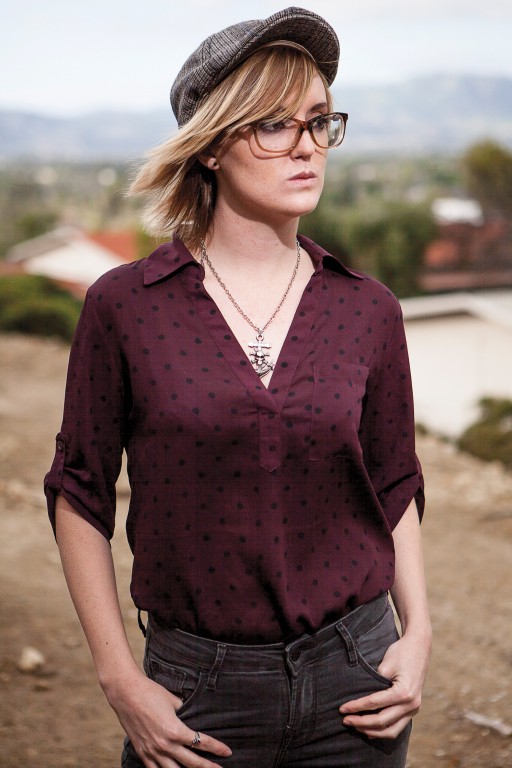
The lights dim, the curtains draw open and the actors step forward all the while stage manager Laurien Dakota Allmon jots down in her binder every single detail from the movements to the stage lighting.
Allmon is the stage manager for the upcoming production of “Sherlock Holmes: The Last Adventure” that will be showing through April 22 to May 1. As the play approaches production, crew and cast are preparing with rehearsals to make sure everyone is ready for opening day.
“I’m the stage manager and assist the director,” said technical theatre major, Allmon. “I do have an opinion it’s just more like I’m the mechanical side of the rehearsal while the director is on the creative side.”
The play is being directed by Gene Putnam and his vision for the play is supported by the efforts of the production crew. Allmon’s duties as the stage manager encompasses what the title implies, anything that has to do with the stage.
Allmon deals with organizing and relaying information to and from the director and cast as well as enforcing Putnam’s vision with the set design and production teams. For each rehearsal she takes careful notes on the actors, lightning, costumes, props and cues to work on for other rehearsals.
She also tries to attend all meetings with the crew but as a result of her schedule that’s not always the case.
“It’s a challenging job to be the stage manager,” costume shop manager and maker, Kathryn Juday said. “She’s the first person between the director and cast.”
In the fall of 2014, Allmon began at Pierce College. Shen has worked her way up to stage manager and taken a variety of theatre classes, such as costume design, make-up, and stage management to become a well-rounded individual knowledgeable in technical theatre.
As a result of her experience with different areas within technical theatre, Allmon is more empathetic toward the production team she helps manage for the play.
“When it comes down to business, she is full throttle,” Assistant stage manager, Trevor Alkazian said. “She’s already making the rehearsal report, doing her homework and doing five million other things as well as putting her own input into the scene.”
Alkazian, who worked with Allmon in the 2014 production of Cabaret, acts as the stand-in stage manager when Allmon is absent. He is also tasked with relieving her of various duties when rehearsals become hectic. However, Allmon remains in charge as the primary manager.
“I would love to work with her more often,” Alkazian said. “I mean we have such a dynamic that we play off each other that it really comes very natural.”
Allmon’s love for the theatre prevents her from feeling stressed about deadlines and her responsibilities.
“A production is on real time not like in film where if an actor messes up lines they can do a retake,” Allmon said. “On stage in the theatre it’s live. During a production everyone is nervous backstage, but it’s working through the nerves that’s fun. It’s thrilling and I love it.”
According to Allmon, stage managing is hard work but as long as you organize, color code everything and focus the job won’t get out of hand.
“Timing and communication is very important for calling cues during the performances,” Allmon said. “During rehearsals it’s enjoying the little moments while working when the actors flamboyantly and dramatically are trying to get their lines down. That’s when we share laughs and have the fun through their little messups and blunders to create the play.”
Allmon’s passion for technical theatre stems from her affinity with creation. Allmon born in Milwaukee, Wisconsin then moved to Sunset, Utah, where the majority of her life was spent discovered theatre.
Every year during December she and her mother attended a production of Scrooge put on by a nearby church sparking her interest.
“No one really knows what it takes to make something, they just see the outcome not the hard work that went into it,” Allmon said.
In high school, sports dominated the interest of students but Allmon took a liking to the huge auditorium where plays were held.
On one occasion her theatre class did a production of Les Miserables around the same time the 2012 film version was released.
“For Les Miserables, I felt the play was better than the movie because we had more emotion,” Allmon said. “We did it because we wanted to create something magical. All the students whether you had a minor parts, lead role, or were backstage crew we all believed in the play.”




